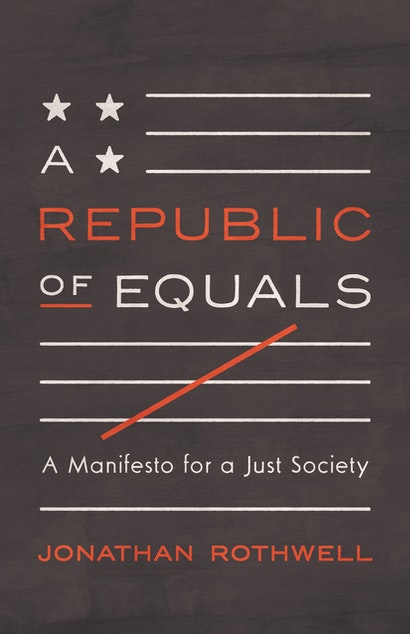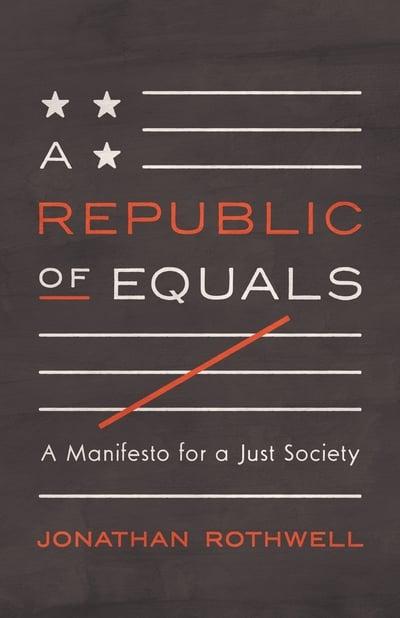Republic of equals
a manifesto for a just society
- ISBN: 9780691206431
- Editorial: Princeton University Press
- Fecha de la edición: 2021
- Lugar de la edición: Princeton. Estados Unidos de Norteamérica
- Encuadernación: Rústica
- Medidas: 23 cm
- Nº Pág.: 379
- Idiomas: Inglés

Why political inequality is to blame for economic and social injustice
Political equality is the most basic tenet of democracy. Yet in America and other democratic nations, those with political power have special access to markets and public services. A Republic of Equals traces the massive income inequality observed in the United States and other rich democracies to politicized markets and avoidable gaps in opportunity-and explains why they are the root cause of what ails democracy today.
In this provocative book, economist Jonathan Rothwell draws on the latest empirical evidence from across the social sciences to demonstrate how rich democracies have allowed racial politics and the interests of those at the top to subordinate justice. He looks at the rise of nationalism in Europe and the United States, revealing how this trend overlaps with racial prejudice and is related to mounting frustration with a political status quo that thrives on income inequality and inefficient markets. But economic differences are by no means inevitable. Differences in group status by race and ethnicity are dynamic and have reversed themselves across continents and within countries. Inequalities persist between races in the United States because Black Americans are denied equal access to markets and public services. Meanwhile, elite professional associations carve out privileged market status for their members, leading to compensation in excess of their skills.
A Republic of Equals provides a bold new perspective on how to foster greater political and social equality, while moving societies closer to what a true republic should be.
1 Behind the Discontent 1
2 The Natural Foundations of a Just Society 51
3 Merit-Based Egalitarianism 68
4 The Importance of Equal Access to Public Goods and Markets 99
5 Unequal Access to Education 116
6 The Historical Contingencies of Group Differences in Skills 148
7 Unequal Access to Housing Markets 191
8 How Unequal Access to Housing Perpetuates Group Inequality
and Injustice 219
9 Unequal Access to the Buying and Selling of Professional
Services 242
10 Creating a Just Society 273







